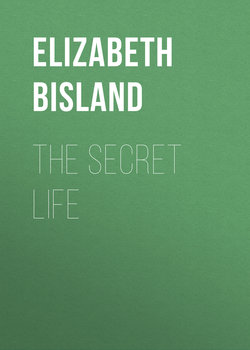Читать книгу The Secret Life - Elizabeth Bisland - Страница 3
July 20.
A Poet Sheep-rancher
ОглавлениеF – is dead, and with the announcement by cable this morning comes a belated letter from M – , full of hope and encouragement. A sudden rally had made her believe in a possibility of recovery – no doubt it was that last flare which comes often just as the oil fails and the light is about to go out.
My mind has been full of amazement all day. It is so difficult to realize that a strong, aggressive personality is finally and definitely extinguished. I have been thinking of their odd, romantic story. He must have had great seductive power – not easily realizable now – to have come into her life and have persuaded her to abandon everything to follow him. I have heard her tell the story often. The tall young sheep-rancher from New Zealand, with his burning eyes and his pockets full of sonnets, appearing one morning, and she suddenly abandons her brilliant position, her jointure, her two orphan boys, and goes away, despite the furious outcries of her family and friends, with a man seven years her junior; goes into the wilderness with him, New Zealand of more than a quarter of a century ago being decidedly wilderness, yet she calls those the happiest years of her life – spent in a shanty fifty miles from the nearest neighbour! She likes to recall the wild scrambles among the mountains; the wrestles to save the sheep from the spring floods; the vigils; the dances to which they rode on mountain ponies, sixty or seventy miles; the makeshifts; the caring for flocks and shepherds in the stress of heat and cold, of sickness and sorrow; and the snow-bound nights beside the fire, when the sonnets came to the fore again. After all it was youth, and love, and adventure; why shouldn't she have been happy? And she was justified in her faith. When I came to know them the detrimental young sheep-rancher moved in a world of gilded aides-de-camp, with sentries and mounted escorts attending his steps, surrounded by tropical pomp and spacious luxury, and now, alas! he is but one more unit in the yearly tribute of flesh and blood demanded by England's Equatorial Empire.
A handsome, brilliant, charming creature. The generation is the poorer for the loss of his graceful, cynical wit. He belonged to the generation who formed their ideals of manners upon Pelham and Vivian Grey. It was Byronism translated into prose. M – says he bore his sufferings – enormous sufferings – with the light and humorous courage with which it was the ideal of the fine gentleman of his period to face all unpleasant situations.
